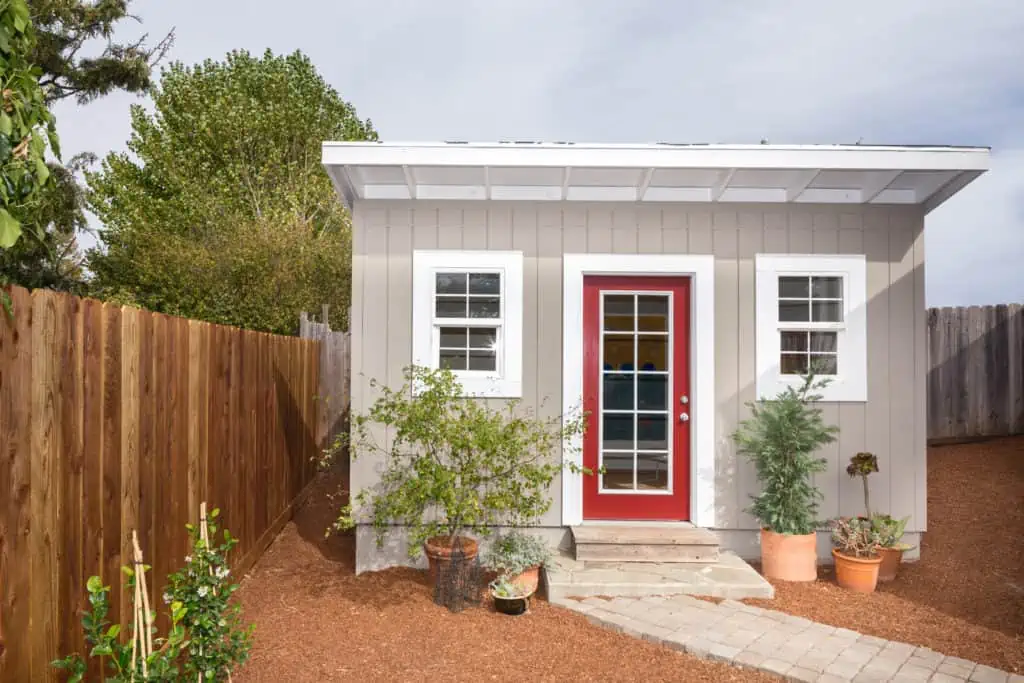You’ve probably joked with your friends at some point about how great it’ll be to get your kids out of the house for good. But when that day actually comes, you might be surprised by the rush of emotions that take over.
For years, you’ve spent a significant portion of your day with your kids. You eat dinner together, listen to them complain about teachers and homework, cheer them on at their soccer games, and fight over whose turn it is to fold the laundry. Then, suddenly, it’s quiet.
Becoming an empty nester comes with complex social, emotional, and financial challenges. But don’t worry: we’re here to help you navigate this difficult time and learn how to adjust — maybe even thrive.
The Complexity of an Empty Nest
“Empty nest syndrome” is not a clinical disorder or diagnosis, but rather a term used to describe the feelings of sadness, depression, or grief that parents often feel when their kids leave home to live on their own, whether it’s to attend college, start a career, or get married. This can be especially true if the parents’ lives were heavily centered around their children’s activities and needs.
“Finding a home that suits you right now is important, but it’s also crucial to think about what you might want five or 10 years down the line, when moving again may not be so easy.”
That said, it’s not all bad. With your kids grown and out of the house, you now have the opportunity to nurture the parts of your life that you may have neglected so that you could focus on your kids. Maybe you now have time to try hot yoga or go for hikes, or you can retire from your day job and start your own consulting business.
Empty nest finances
Your children may no longer be living with you, but that doesn’t mean the financial umbilical cord has been cut. It’s typical for empty nesters to face a unique set of financial difficulties, including:
- Adult child welfare: 73% of middle-aged parents are financially supporting an adult child. That can include paying their cell phone bill, helping with rent, or even providing an allowance so they can get by. It’s a parenting decision that’s up to you, but generally, financially providing for adult children isn’t considered a helpful solution to helping them become fully independent.
- College expenses: Another 7% of parents use their retirement funds to pay for their child’s college education. This puts aging parents in a difficult position, as students can borrow money to pay for college, and live off of ramen to skimp by until they start their careers, but you simply don’t have the time to make up for lost savings that were meant to live comfortably in retirement.
- Co-signing family loans: Maybe your child needs a car, a private student loan, or is trying to become a homeowner. In many cases, they don’t have the credit and assets built up to get approved. That’s where you may come in as a co-signer, which means you’re equally responsible for paying the debt if your child can’t.
- Boomerang children: It’s common for adult children who’ve moved out to experience financial challenges that cause them to move back in with their parents. This can feel like starting from square one, with your child reverting to being more dependent on you financially.
See prices for local moving labor. Read real customer reviews. Easily book your help online.
Is it time to downsize now that your nest is empty?
Maybe you’re struggling to help support your child even though they’ve flown the coop. Or maybe they’re wonderfully independent and you don’t have to worry about them at all. Either way, as an empty nester, now may be a great time to downsize.
Downsizing your living situation can help you save money and make your life easier in general. Now that you don’t have a house full of kids, there’s no reason to pay for the upkeep of a huge house (unless you want to, of course).
Some signs that it might be time to downside include:
- Empty or unused rooms: If you have multiple rooms in your house that are rarely or never used, it might be a sign that you have more space than you need.
- Maintenance challenges: If keeping up with cleaning, repairs, yard work, or other home maintenance tasks becomes too challenging or time-consuming, a smaller home might be easier to manage.
- Financial pressure: If you’re feeling stressed about your current financial situation—whether it’s due to mortgage payments, property taxes, or the cost of upkeep—it might be beneficial to move to a smaller, more affordable home.
- Location: If you’re far from family, friends, or amenities you regularly use, it may make sense to move to a more convenient location, which could also involve downsizing.
- Health concerns: Mobility can become an issue as you age. A smaller home or a one-level property can be easier to navigate.
On the other hand, you might decide you’d rather “age in place.” Aging in place means you’ve decided to stay in your current home as you get older. Maybe you have a lot of fond memories in your home and you don’t want to move somewhere that feels cold or foreign in comparison. Maybe your home is already the perfect size and location, and you really don’t see yourself anywhere else.
“It’s common for adult children who’ve moved out to experience financial challenges that cause them to move back in with their parents.”
Of course, there’s always the option of moving to another country, which can mean a lower cost of living in comparison to that of the US depending on where you choose to settle.
It’s also possible to make modifications in your home to accommodate changing health and mobility needs as you age, such as replacing door knobs with more ergonomic options and adding ramps to stairways.
Choose Your Downsized Home Carefully
If you do decide to downsize, it’s important to choose a home you’ll love that also offers the functionality and amenities you need.
- Start by assessing your top 2-3 needs. Think about the number of rooms you need, accessibility features, and any specific location requirements. Will you still have regular visitors requiring a guest room, or do you need a home office space?
- Location, location, location. Consider the proximity to family, friends, healthcare facilities, and amenities like shops, restaurants, museums, and outdoor space. You may also want to think about the community in general and whether it’s a place where you can see yourself feeling at home.
- Keep maintenance in mind. You’ll need to decide whether you’d prefer a standalone house, a condo, or an apartment. Each type of housing comes with different levels of required maintenance and responsibilities. Do you see yourself being hands-on, or would you prefer that a property management company handles leaky sinks and landscaping?
- Don’t forget about your budget. Be realistic about your financial situation. Consider not only the cost of the house itself but also property taxes, homeowners insurance, and the cost of utilities and maintenance.
- Imagine your future needs. Finding a home that suits you right now is important, but it’s also crucial to think about what you might want five or 10 years down the line, when moving again may not be so easy. Features like a single-level design, wide doorways, and a walk-in shower might become important.
- Research community services. Look into what community services are available, like public transportation, senior centers, and community activities. You want to feel confident that there’s a support system in place for you.
- Consult a real estate agent: If you’re feeling overwhelmed by the possibilities, a real estate agent familiar with your area can help guide you to homes that meet your criteria and are within your budget.
Moving a Home Full of Memories
Moving as an empty nester can come with a range of challenges. While there may be excitement and anticipation for what lies ahead, there can also be significant emotional hurdles to overcome. Leaving a home where you’ve raised your children and accumulated years of memories can feel like a significant loss.
The good news is that having a solid downsizing strategy in place can help alleviate some of that stress.
- Inventory your belongings: Start by taking an inventory of what you have. This will help you figure out what to keep, what to sell or donate, and what to discard.
- Prioritize your possessions: Decide what items are essential to you and which ones you can let go of. Try to be realistic about what will fit and work well in your new space, and avoid getting hung up on sentimental items.
- Start small: Begin the downsizing process with less emotionally-charged areas of your home, like the garage or a storage closet. This can help you build momentum and get used to the process before tackling more meaningful areas like the bedroom or living room.
- Consider your new space: Keep in mind the size and storage space of your new home. This will guide your decisions on what to keep. If possible, get a floor plan of your new home to help visualize where everything will go.
- Involve your children: If possible, involve your adult children in the process. They may want to keep certain items or help make decisions about family heirlooms or keepsakes. Plus, it’s a way to spend time together as a family even if they’re living on their own.
- Digitize memories: If you have boxes of photos, consider digitizing them to save space. The same can be done with important papers or documents.
- Hire professionals if needed: If the process becomes too overwhelming, consider hiring professional organizers, a senior move manager who specializes in helping older adults downsize, or professional movers to help with the heavy lifting.
- Embrace the process: Downsizing can be an emotional journey. Take your time to say goodbye to your old home and make peace with the move.
Remember, your kids aren’t the only ones embarking on the next chapter of their lives. This is your moment to grow, too. Maybe you and your spouse can finally reconnect, or perhaps you have the time and money to travel abroad and meet new friends. Whatever the ideal empty-nest life looks like for you, there you have the power to make it happen.









